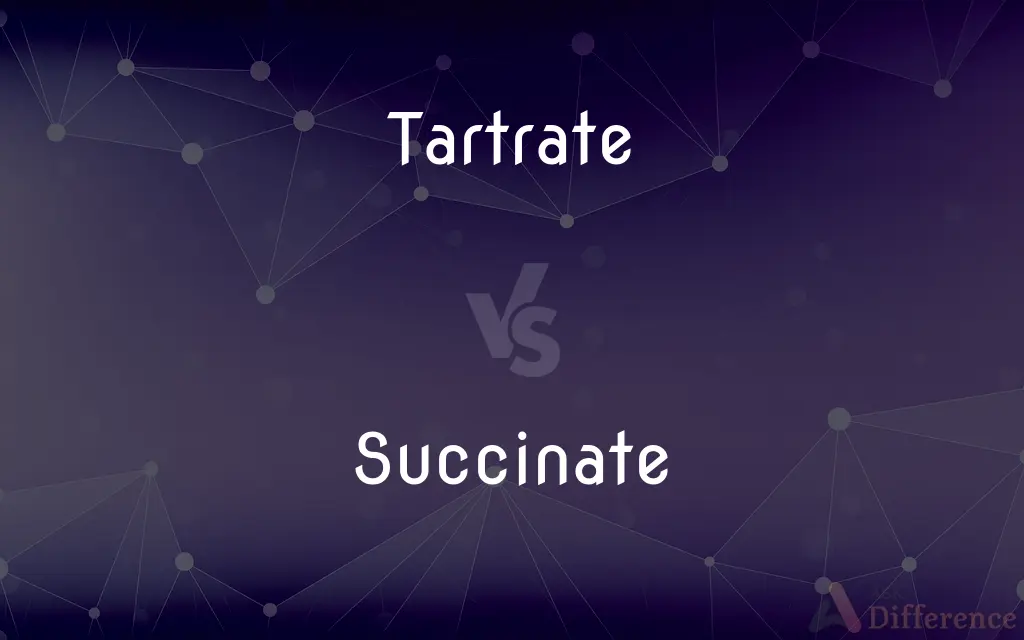Tartrate vs. Succinate — What's the Difference?

Difference Between Tartrate and Succinate
ADVERTISEMENT
Compare with Definitions
Tartrate
A tartrate is a salt or ester of the organic compound tartaric acid, a dicarboxylic acid. The formula of the tartrate dianion is O−OC-CH(OH)-CH(OH)-COO− or C4H4O62−.The main forms of tartrates used commercially are pure crystalline tartaric acid used as an acidulant in non-alcoholic drinks and foods, cream of tartar used in baking, and Rochelle salt, commonly used in electroplating solutions.
Succinate
A salt or ester of succinic acid.
Tartrate
A salt or ester of tartaric acid.
Succinate
(organic chemistry) Any salt or ester of succinic acid.
Tartrate
(organic chemistry) any salt or ester of tartaric acid
ADVERTISEMENT
Succinate
A salt of succinic acid.
Tartrate
A salt of tartaric acid.
Tartrate
A salt or ester of tartaric acid
Share Your Discovery

Previous Comparison
Debriefing vs. Defusing
Next Comparison
Catenate vs. Concatenate














































